“I’m not tired — I’m just fed up.”
|
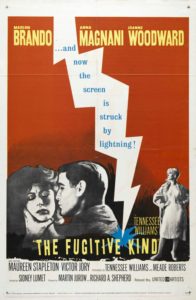
Synopsis:
A drifter-guitarist (Marlon Brando) hoping to leave his wild life behind settles for a job as a clerk at a store owned by an ailing bigot (Victor Jory) and his long-suffering wife (Anna Magnani). Meanwhile, a troubled girl (Joanne Woodward) who’s unwelcome in the small town tries to seduce Brando, but he won’t be lured by any woman — at least not at first.
|
|
Genres, Themes, Actors, and Directors:
- Anna Magnani Films
- Deep South
- Joanne Woodward Films
- Marital Problems
- Marlon Brando Films
- Sidney Lumet Films
- Tennessee Williams Films
Review:
Sidney Lumet’s adaptation of Tennessee Williams’ play Orpheus Descending — itself a remake of Williams’ unproduced Battle of Angels (1940) — is an intriguing entry in Marlon Brando’s screen career, marking what many consider to be the start of his decline, but still showing ample evidence of his charisma. It’s easy to see why the symbol-laden storyline (drenched in both Greek mythology and Christianity) was a challenging one for Williams to “get right” (and get made) — but it more or less works, given the ample star power on display, atmospheric sets and cinematography, and Williams’ unique feeling for outsiders. This one will primarily be of interest to fans of any of the three leads — and/or Lumet or Williams — and is certainly worth a look; but other film fanatics needn’t consider it must-see.
Redeeming Qualities and Moments:
- Marlon Brando as ‘Snakeskin’
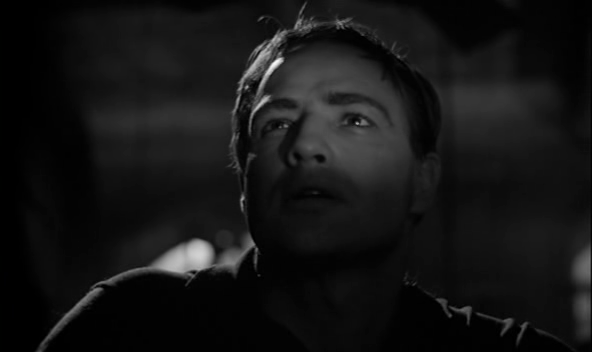
- Anna Magnani as Lady

- Joanne Woodward as Carol
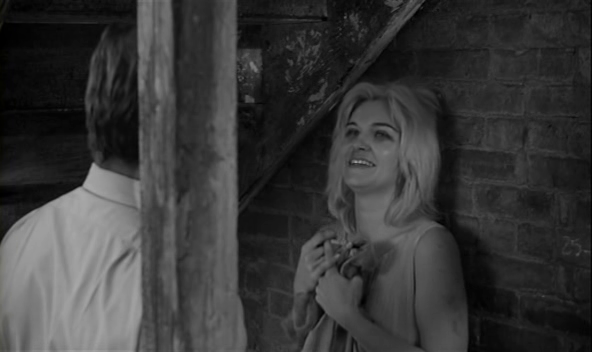
- Notable supporting performances
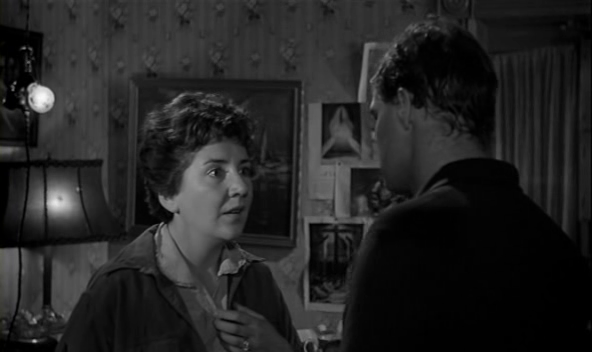

- Boris Kaufman’s cinematography
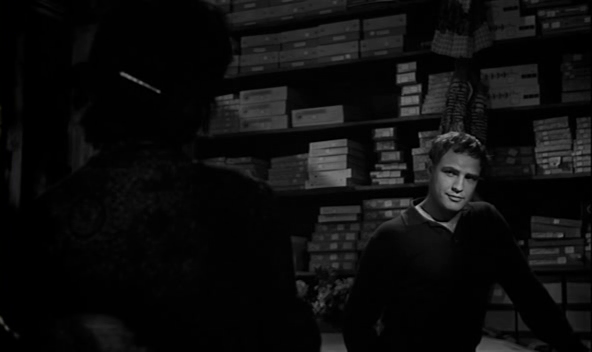

Must See?
No, but it’s certainly worth a one-time look.
Links:
|
One thought on “Fugitive Kind, The (1960)”
First viewing. A tentative once-must, for Lumet’s direction and for the performances. As per my post in The ’40s-’50s in Film (on facebook):…..
“All we know is just the skin surface of each other.”
‘The Fugitive Kind’ (1960) [on FilmStruck]: Sidney Lumet’s film of the Tennessee Williams play ‘Orpheus Descending’ (which TW co-adapted with Meade Roberts) is a lot better than its reputation has us believe. It’s still a bit of a problem – but it’s nowhere near as ‘tragic’ as the 1990 film version of the original play – in which Vanessa Redgrave gives a rare terrible performance. ~but then, everything about that version is more or less incomprehensible.
Until now, I hadn’t seen this film. But what’s almost immediately gripping about it is not only Lumet’s uncanny ability in making the strangely poetic and somewhat arid tale work as compelling realism… but he also locks squarely into the bountiful recesses of his cast (including Marlon Brando, Anna Magnani, Joanne Woodward, Maureen Stapleton, etc.). Occasionally the script is still a bit frustrating in its lurid bent but overall the cast achieves impressive work. .~esp. Woodward; I’m not all that fond of her early work in general but, under Lumet’s guidance, her breakthrough here is quite special. It actually is one of her best performances and shows us she was ready to deliver in the years to come.
‘TFK’ is a ’50s-’60s periphery film. Unlike something quite bold like ‘Psycho’ (released the same year), it doesn’t completely abandon ’50s repression. It should dare to be more than merely suggestive. As is, it bridges one decade to another – clearly reflecting the transition of ‘out with the old, in with the new’.